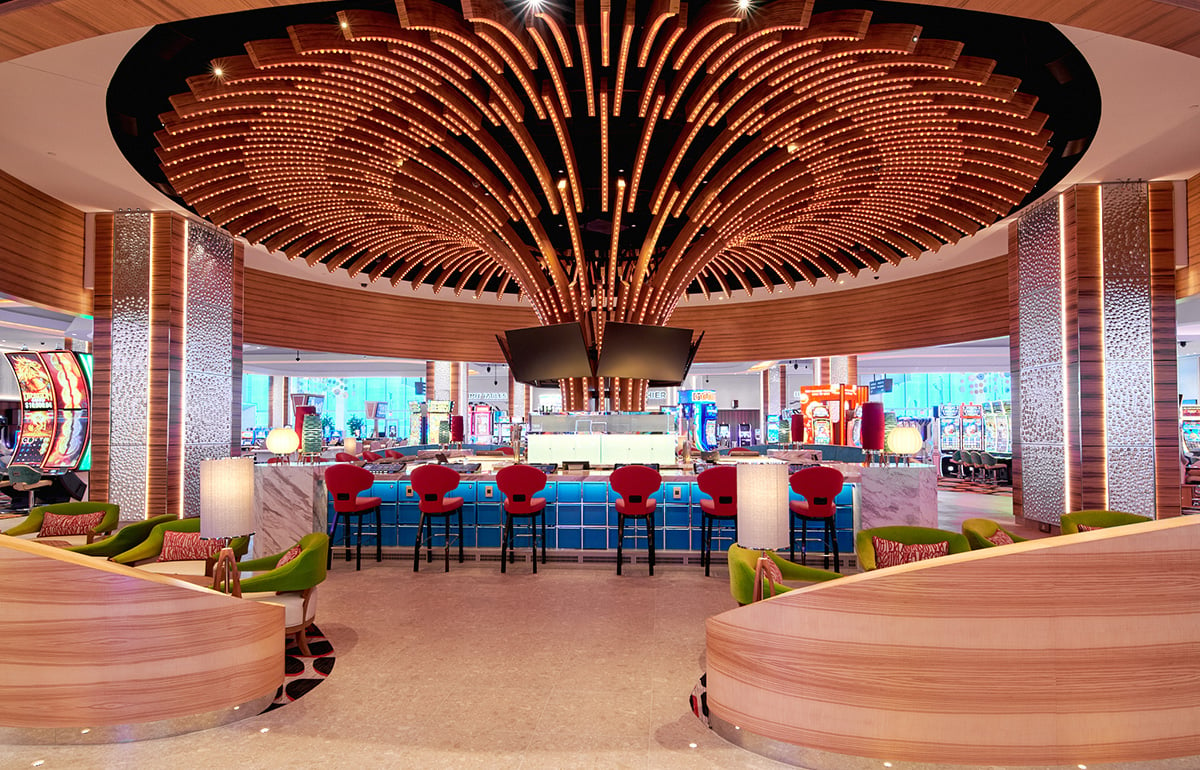The Cultural Influence of Casino Activities Across the Globe
- auroralittleones.ca
- 0
- Posted on

Gambling games have long been a engaging form of entertainment, drawing numerous of players from varied cultures around the globe. From the lively casinos of Las Vegas to the busy gambling halls of the Chinese gambling capital, these games serve as a common thread that unites people across different backgrounds. The allure of luck, skill, and gambling entices not only those seeking to strike it rich but also those looking for a sense of community.
The influence of casino games extends significantly past the gaming floor. They often embody the social norms and beliefs of the societies in which they prosper. Games such as seven-card stud, 21, and roulette have integrated into the mosaic of cultural phenomena, influencing everything from films to fashion. BET88 COM As we explore this intriguing intersection of gambling and culture, we can better understand how casino games shape and are affected by the environment surrounding us.
Chronological Development of Gaming Activities
The origins of gaming activities can be tracked back to historical cultures, where betting in multiple forms was extensively engaged in. In the East, around 2300 BC, a form of luck game known as Keno was common, while in old the Roman Empire, soldiers would frequently bet on the outcomes of their games. The concept of using luck for amusement and income developed over the years, leading to the establishment of more organized games. By the late Middle Ages, gambling houses initiated to emerge in the continent, particularly in the Italian peninsula, which brought forth early versions of popular activities still enjoyed today.
As betting expanded fame in European regions, the 17th and 18th centuries saw the appearance of gaming houses as dedicated establishments for gambling. The initial official gambling house, the Ridotto, was founded in Venice in 1638, featuring games like Baccarat and the game Faro. This period marked a crucial shifting point, as casinos began to draw not just the elite but also the growing middle-tier society. The complexity of activities increased, leading to the introduction of new guidelines and versions that enriched the experience of players.
In the 19th century, the era of industrialization and shifts in social standards also altered the landscape of gambling games. The arrival of roulette and modern slot machines attracted a larger clientele, and gambling establishments became seen as legitimate forms of fun. This era witnessed the globalization of casino activities, as gambling houses expanded from the continent to the Americas, culminating in the development of the famous Strip of Las Vegas in the 20th century. The development of gaming activities has progressed into the present day, including new technologies and online sites, rendering them accessible to a worldwide market.
### Cultural Importance within Different Societies
Gambling games have profound cultural significance in numerous societies around the globe. For instance, in Las Vegas, the very core of the urban landscape is woven around casinos, where gaming is not just a hobby but a fundamental aspect of entertainment and community life. The vivid lights and lively atmosphere attract millions, showcasing how gambling activities can influence local financial landscapes and local cultures. This environment transforms the notion of recreation into an immersive event that shapes style, sound, and even movies.
On the other hand, some cultures view wagering with more caution, seeing it through the lens of ethical beliefs and customs. A case in point, in numerous Asian cultures, games like Mahjongg and Pai Gow Poker are steeped in history and carry significant social relevance. These games are often played during meetings and festivities, fostering social ties and solidifying kinship ties. The act of playing these games goes past mere amusement, reflecting principles such as respect for elders and the importance of communal fun.
Meanwhile, in Western countries such as Monte Carlo and Rome, games of chance serve as symbols of luxury and refinement. The refined atmosphere of these locations attracts both visitors and residents, upholding a sense of status and exclusivity. The art of poker and the tactical components of games like banker’s game are celebrated, molding community relationships and cultivating an appeal that enthralls a heterogeneous audience. https://bett88.co/ This underscores how casino games can both echo and influence societal views towards risk, gain, and relationship building.
Financial Influence and Travel Industry
Casino games play a crucial role in the financial context of many regions, particularly those that depend significantly on tourism. The revenue produced from gambling establishments fuels local financial systems, creating jobs not only within the casinos but also but also in related sectors such as hospitality, restaurant services, and entertainment. This surge of tourists, drawn by the attraction of gambling and the overall casino experience, stimulates expenditure across multiple businesses, contributing to the economic vitality of the area.
The presence of casinos often leads to the development of infrastructure, including lodging, public transit, and leisure amenities. These improvements are essential in enhancing the overall visitor satisfaction, making locations more appealing to tourists. Additionally, many casinos invest in local communities through support of events and charitable initiatives, further embedding themselves into the community structure of the region. Such investment not only supports economic growth but also fosters a positive image of the gambling sector.
Moreover, the global popularity of casino games drives tourism competition, with locations vying to attract gamblers from across the globe. Iconic locations like Las Vegas and Macau have become synonymous with casino culture, drawing millions annually. This advantage encourages creativity and diversification within the gambling sector, influencing developments in entertainment and hospitality that resonate beyond their limits. The consequences of this tourism extend far, impacting local financial health and cultural exchanges on a worldwide scale.
